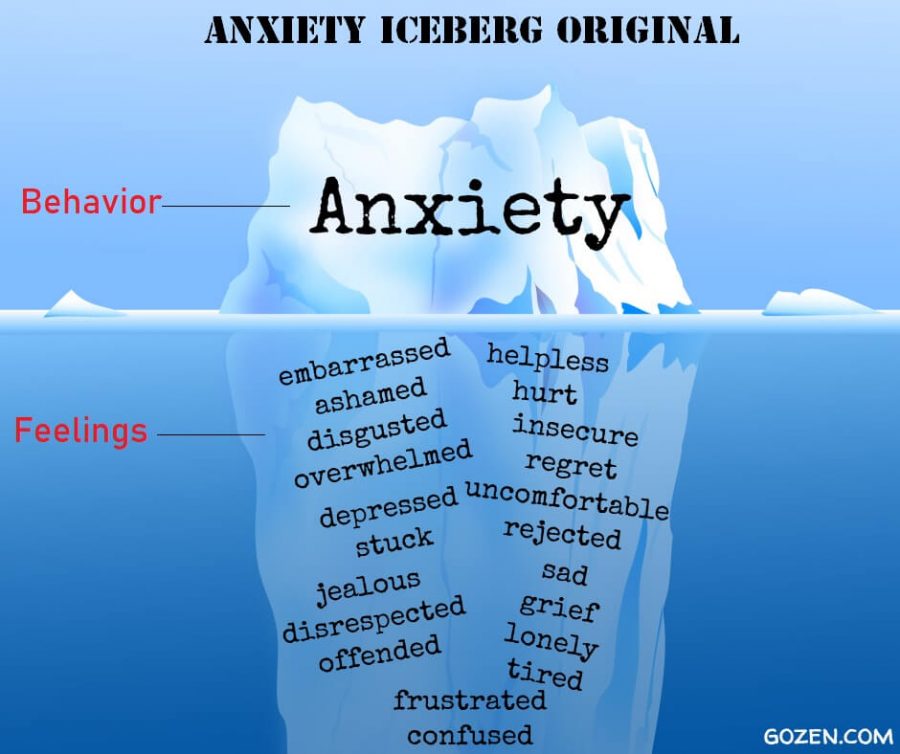Mental Health Concerns
Students need to reach out when anxiety sets in
November 4, 2019
We all get depressed, and we all feel sad, anxious, and upset. But we all have good days, as well. We students are lucky, though, we have excellent resources all over the school to talk to when we need help.
Our guidance counselor for the Junior and Seniors, Dr. Spaid was helpful in letting me know a few things about our programs to help students who are struggling. She states that our culture is what is effecting these students: the increase in ways that students feel unsafe and the ways that students are struggling self-esteem.
Dr. Spaid states, “I believe social media is a key cause of anxiety and depression in students. It is easy to be hateful and hurtful to others when you are hiding behind a keyboard.” Social media is hard to live with, and no generation has been raised with social media like ours have. But despite this there are things we as students can do and ways that teachers can help students who are struggling.
Dr. Spaid says that students just need to talk to someone, a parent, friend, teacher, or counselor. “Students need to feel valued and supported. That comes from all of us at school: teachers, counselors and administrators. I know all the teachers care about their students and try to help in any way they can. Students need to ask for help – not be afraid to reach out.”
Dr. Spaid says that friends and family are very helpful, too, and states: “Friends need to be friends. They need to do the right thing for their friend and not hurt them. Family is the support when a student leaves school. Some students have tough family situations, and they need their friends even more. Friends need to tell a trusted adult if they are afraid for their friend. If the friend is making inferences to suicide or harming themselves, the friend should encourage them to come to guidance. If the person refuses, the friend needs to come and report it. The friend might be upset, but it just might save a life.”
Students should not be afraid to reach out. Dr. Spaid suggests that upper-classmen, especially Seniors, need to talk to lower-classmen and let them know that there are consequences for their actions and behaviors.
Students should also understand that being referred to SAP is a way of getting help, and most students do not know that we have a counseling program at the school called Beacon Light. We also have a homeless liaison and in future a tutoring program will be available. There are also places you can go outside of school. For instance, churches have many programs to help students in various ways.
Students know that there are many times of the year when anxieties run high from things like big projects, dances, the holidays, and even around the third marking quarter. Sports can also make students anxious; juggling different responsibilities at a young age is hard.
Parents don’t always understand because they aren’t growing up like we are, and they sometimes forget how hard it is to be a young kid. I know students who hold good grades and take college classes, have a job, play sports, have social lives, and participate in clubs, along with having some time for themselves and it is stressful. People need to be aware of the fact that most kids are dealing with more than some homework and gossip.
Students are just trying to get through the day and plan for our futures. Taking some time just to even think about what students are dealing with can help adults empathize and not jump to conclusions. Some adults forget that, while they work a job, many students go to school for 7.5 hours then have sports practice, then get dressed and go to work, then come home and do homework. Sure they might make this choice but it doesn’t make it any easier, and this “choice” isn’t always as much of a choice as you think. We need service hours. work experience, good grades, and extracurricular activities to get into some colleges, and while doing all of these things it is hard not to get stressed and anxious about even small things.
So, students, you need to reach out and get as much help as you need. Go to your friends, be a good friend, talk to a teacher, counselor, parents, or clergy. And adults who students count on for support need to reach out and try to help, empathize, and sympathize as they think about what students are dealing with today.

